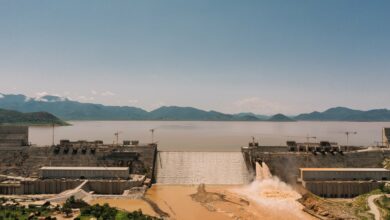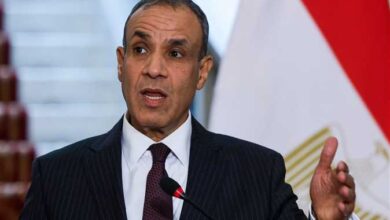Cairo over the coming days will be the scene of intense discussions between the Nile Basin states, which are trying to contain an emerging crisis in which five of the states have signed a new Nile water sharing agreement without the approval of Egypt or Sudan.
The discussions will begin with the arrival of Kenyan Prime Minister Ralia Odinga to Egypt tomorrow. He will be leading a high-level delegation for the four-day visit that includes the ministers of foreign affairs and irrigation. President Joseph Kabila of the Democratic Republic of the Congo will arrive in Cairo on 25 May for a four-day visit as well.
An aide to the foreign minister, Mona Omar, said the Kenyan prime minister will conduct talks with Egyptian officials on the latest developments in Africa as well as on cooperation between the countries in the fields of commerce, power generation, agriculture, animal husbandry and modern irrigation systems. Odinga will also attend a meeting of the African Association in Cairo, where a party will be held in which he will receive a shield in honor of his father, Jaramogi Odinga, who was the first vice-president of Kenya, led the Kenyan African National Union from Cairo, and received an Egyptian passport.
In related news, Ethiopian Prime Minister Meles Zenawi criticized Egypt’s refusal to re-allot Nile waters between Nile Basin states. In comments on Al-Jazeera yesterday, Zenawi said Egypt does not have the sole right to define each state’s share of water, and Cairo “will not be able to stop Ethiopia or prevent it from building dams on the river.”
The Kenyan Minister of Water Resources Charity Ngilu said, “the 1929 treaty is obsolete, and there is nothing to stop us from using the Nile’s waters as we please.” She added that Egypt “has no choice except to approve the new agreement.”
In related news, an official Egyptian report has stated that the Israeli presence in the Nile Basin states is minimal. The report was issued in response to accusations that Egypt had not hindered Israeli encroachments into the African continent.The report said Cairo has seven embassies in the Nile Basin states, whereas Israel only has three embassies in the states of Ethiopia, Kenya and Uganda.
The report, which compares the Egyptian and Israeli presence in the Nile Basin states, focuses on the visits between President Mubarak and leaders of these African states and examines the different aspects of Egyptian cooperation with these states. The level of investment also reveals Egypt’s stronger position compared to Israel. Egypt’s superiority in these matters comes in spite of efforts by Tel Aviv to “interfere in the states’ internal affairs,” particularly to ensure that Israeli achieves its military and strategic goals along the Red Sea, said the report.
Translated from the Arabic Edition.



